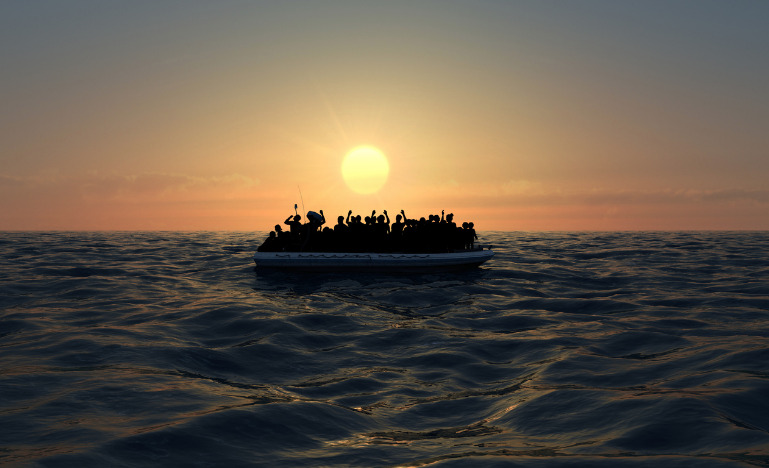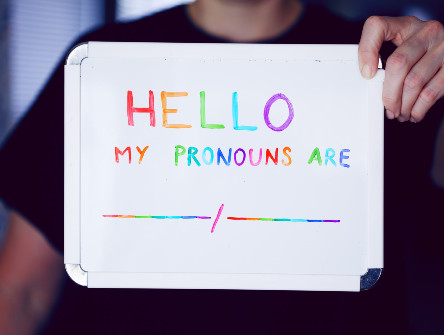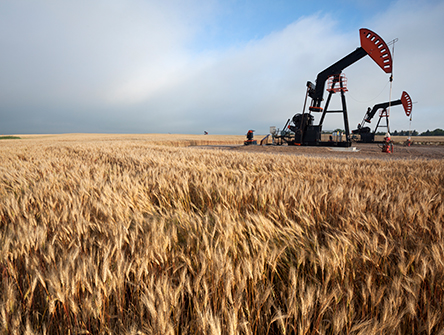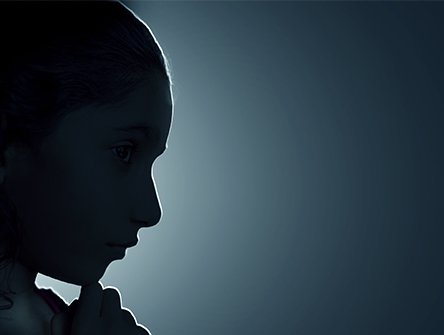Unrecognized and unprotected
There is a worrying discrepancy between our acknowledgment of the severity of global warming and our willingness to address the worsening climate refugees crisis.

On Tuesday, Environment and Climate Change Minister Catherine McKenna took to the podium in Ottawa to thank her supporters following her electoral win. She expressed her gratitude that climate changed had been “a top election issue.” “Climate change is not just an environmental issue,” she said. “It’s an issue about the kind of future we want to see for our kids, and our grand-kids.”
Central to the Liberal Party’s platform was a commitment to more ambitious targets and to reach net-zero carbon emissions by 2050.
This commitment is a welcome change and, one would hope, helped to contribute to the Party winning its minority on Monday. One would also hope that it is just the first step of many when it comes to fighting the climate crisis and protecting the people who are the most impacted by it.
Data shows that the effects of global warming are speeding up – climate change effects are increasing in severity and frequency, from floods in the Bahamas to wildfires in the US.
Climate change is also displacing millions of the world’s poorest people – widely referred to as ‘climate refugees,’ though lacking formal definition or legal protection.
Undefined and unprotected
Victims of natural disasters, though forced to flee their homes, are not given the same protection as other refugees, which according to the 1951 Refugee Convention, are defined as people fleeing direct persecution – usually associated with religion, political beliefs, race, sexuality, or gender identity. In the most technical sense, displaced people are not ‘persecuted’ by the environment; nature is ultimately arbitrary.
Notably, the term ‘climate refugee’ does not exist in international law – despite, every year, roughly 26.4 million people being displaced from their homes by flooding, droughts, hurricanes, and earthquakes.
There are multiple reasons cited for this lack of legal recognition, from the intricacies involved in defining a ‘climate refugee’ to the notion that most climate change related displacement is internal. The United Nations and G7 have held debates and discussions in an attempt to resolve this issue. The UNHCR, for example, does not endorse the term “climate refugee.” But while the battle to match the extent of their plight to a set of well-defined legislated criteria is still ongoing, victims of human-caused natural disasters remain largely unprotected. And, as the Earth continues to heat up, the issue continues to grow -- the International Organization for Migration (IOM) estimates that there could be as many as 200 million such refugees by 2050.
This means, for instance, that the estimated 200,000 Bangladeshis who become homeless each year due to river-bank erosion, are unable to appeal for resettlement in another country easily. Meanwhile, the residents of the small islands of Kiribati, Nauru and Tuvalu (amongst the countries most vulnerable to climate change), cannot be classified as refugees – despite being ‘trapped’ in worsening environmental conditions, with only about a quarter of households having the financial means to migrate – or flee. Migration at its root, however, should be a choice – when people are forced to leave their homes as a matter of survival, they ought to be offered protection rather than skim the skirts of legal definition – especially given the worrying escalation of climate change.
Global warming is speeding up
The latest data show the last five years as the warmest on record, with sea levels rising significantly during this period. The study shows that, wherever you look, human factors have led to an increase in extreme weather events, leading to more humanitarian catastrophes. The worrying rise of sea levels, for example, particularly threatens the coastal areas in Asia and Africa, and Small Island States – as we have seen with tragic effect only recently across the Bahamas, where the UN estimates 76,000 people have been left homeless since Hurricane Dorian struck the archipelago. Though many Bahamians are now in need of refuge, however, the US has declined to grant them temporary protected immigration status – despite granting it to victims of natural disasters in the past. Sadly, the Trump Administration continues to criminalize and revictimize migrants, even in the face of a humanitarian crisis. This wouldn’t happen if there were legislation in place to protect them.
The poorest are hit the hardest
The Earth is heating up, with drastic implications for the fate of humanity. Millions of people took to the streets across 185 countries to protest against climate change last month. It is widely recognized that urgent action is needed to tackle the effects of climate change, visible across the Bahamas, Haiti, Sri Lanka and California – to name just a few locations. Fires are still raging through the Amazon. The world is actively aware of the effects of climate change, and while it is still high on the political and public agenda, there is a clear window to seek legislative reform to protect the people most affected by it.
Fifty per cent of global emissions can be attributed to the wealthiest 10 per cent of people around the world – yet the poorest people are the ones hit the hardest by the effects of climate change. More affluent countries need to take action – whether it’s giving them a chance for refugee settlement, or even to apply for citizenship. They need to take responsibility for cause and effect – for the millions of people forced to flee their homes as a result of climate change. Sadly, there is a clear discrepancy between the acknowledgment of the severity of global warming and the lack of support in place for the people most affected by it, who tend to find themselves both without a home and in a state of legal limbo


